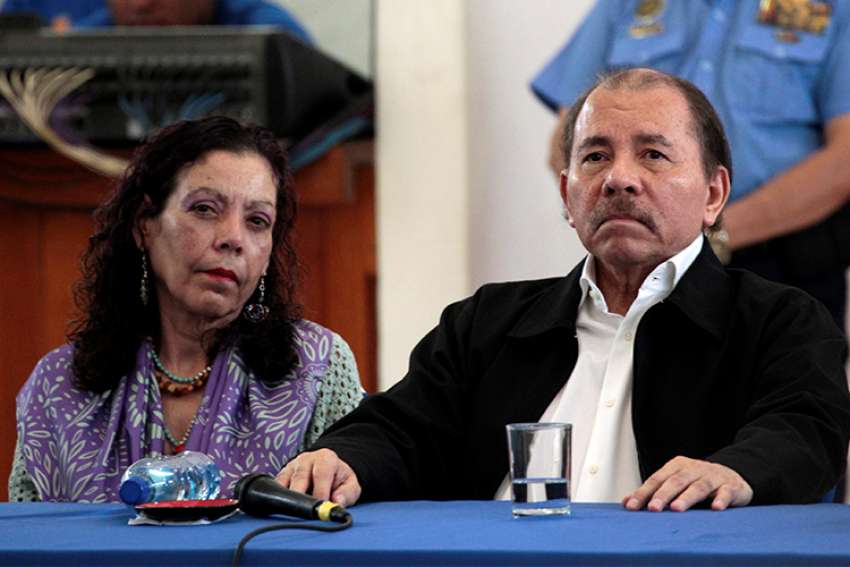Ortega and his Sandinistas were a movement, even more than a government, standing up to the might of the world’s super power and its Contra rebels. Thousands of Canadians travelled south to help Nicaraguans — to teach new farming techniques, build infrastructure and a whole lot more.
As a young reporter, I was moved by so many Canadians travelling so far to volunteer their time and expertise in a war-torn and ofttimes dangerous country. Toronto social worker Jenny Green died in Nicaragua trying to help.
But I was even more inspired by the Nicaraguan people; most desperately poor. One family welcomed me into their “home” overnight. (I put the word home in quotes because it was not much more than a tarpaper shack.)
For dinner, we ate refried beans and the mother gave me her last piece of chicken. In broken Spanish, I asked her to give it to her children, not me. She was insistent that her guest must receive it. With my fork, I put the chicken on her daughter’s plate. Then both mother and daughter became indignant so I ended up eating it.
That family had so little, but also so much.
Another night, I met Tomás Borge, then Nicaragua’s Interior Minister and a co-founder of the Sandinista National Liberation Front. A thinker, writer and revolutionary, Borge was imprisoned in 1976 by the Somoza family, the political dynasty and family dictatorship from 1936 to 1979 in Nicaragua. Borge told me graphic stories about how the Somozas abused power and people, including torturing him and crushing his testicles.
His point was that the Sandinistas could never allow the Contras to win and install another dictator.
Eventually, peace did come, the Sandinistas peacefully ceded power for several years and Ortega democratically returned to the presidency in 2007.
Which brings me to today. By all accounts, Ortega has become the despot and the tyrant Borge feared. Ortega is now killing his own people in a senseless and senile bid to cling to power. Almost 140 have died and 1,000 more injured in daily protests that began in April, according to the Inter-American Commission on Human Rights and The Nicaraguan Centre for Human Rights (CENIDH).
The Catholic Church has tried to stop the killing, but to no avail. Earlier this month, bishops met with Ortega to discuss a plan to reboot talks to quell the crisis, but Ortega gave no assurances or commitments.
Protests were sparked by Ortega’s cuts in pensions, which he later reversed, but other grievances like corruption, presidential power grabs and the elevation of his wife, Rosario Murillo, to follow him as president in a Somoza-like succession plan keep the protests going.
Mothers are now marching peacefully to protest the killing of their children. In a heretical case of abuse, police laid siege last week to a Catholic church in Masaya, south of Managua, after 30 opposition supporters sought refuge there.
Ironically, in a back-to-the-future scenario, Nicaragua has become a country of barricades — just as it was in the late 1970s until the Sandinistas overthrew the Somoza family in July 1979. The barricades were such a symbol of the revolution — which brought Ortega to power the first time — that the now-defunct Sandinista newspaper took the name Barricada.
On June 3, Pope Francis expressed his “sorrow for the serious violence, with dead and wounded, carried out by armed forces to repress social protests. I pray for the victims and their families.”
Bishop Rolando Álvarez, one of the most senior members of the Church in Nicaragua, told Britain’s The Guardian that unless the country’s 72-year-old president offers immediate concessions “it is very likely that Nicaragua will find itself caught up once again in a civil war. It would be a disaster, a chaos that we do not want.”
Álvarez is bishop of the city of Matagalpa, where Borge was born. Borge died in 2012 and one can only imagine that if he were still living he would point out to Ortega that he has become everything the Sandinistas loathed and fought against.
And I can’t help but think of that indignant little girl who insisted I eat the last piece of chicken. She might be a mother now and I’d wager she’d be one of the thousands of mothers marching for peace.
(Brehl is a writer and author of several books.)


